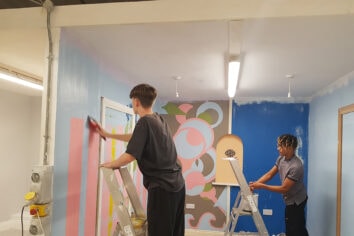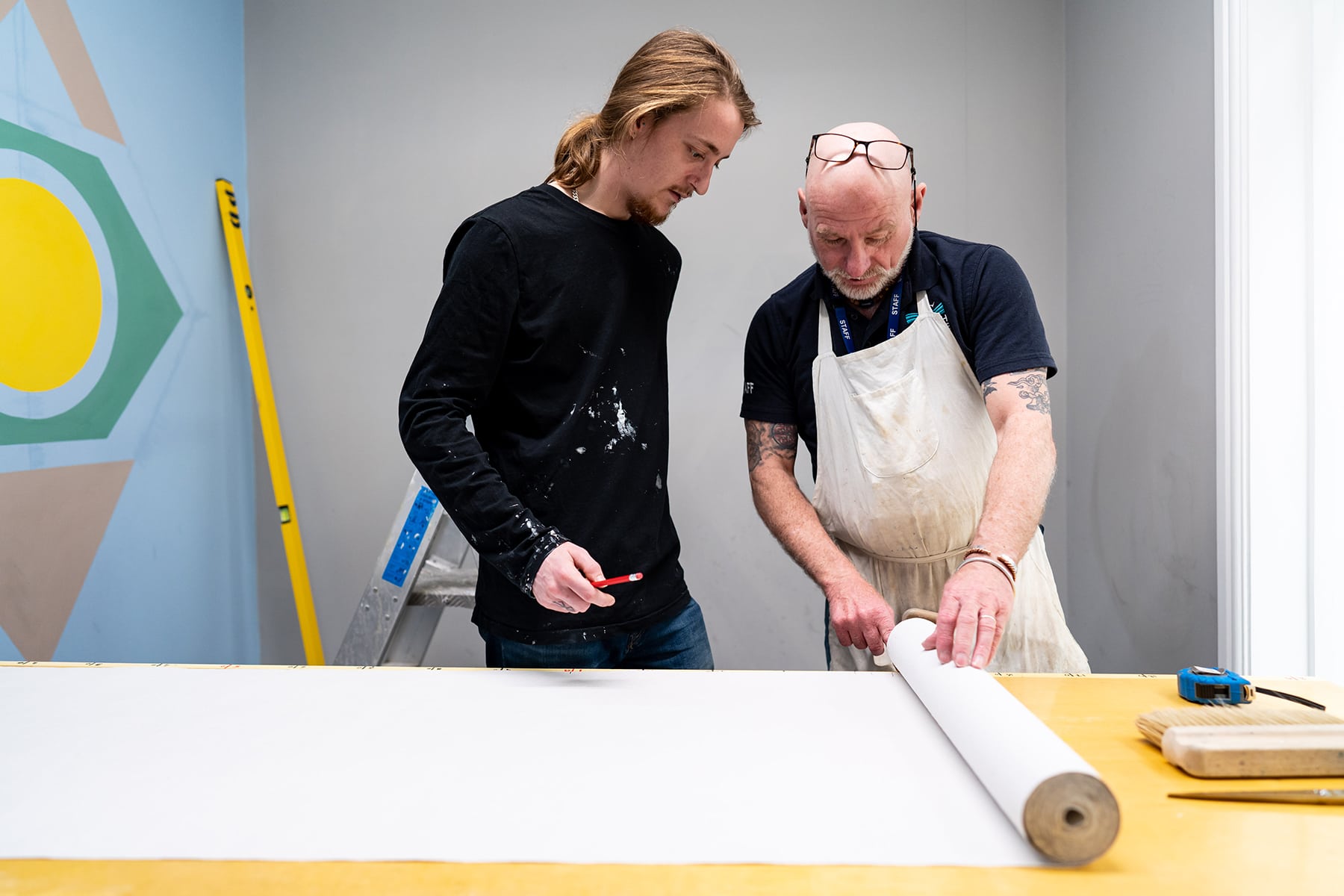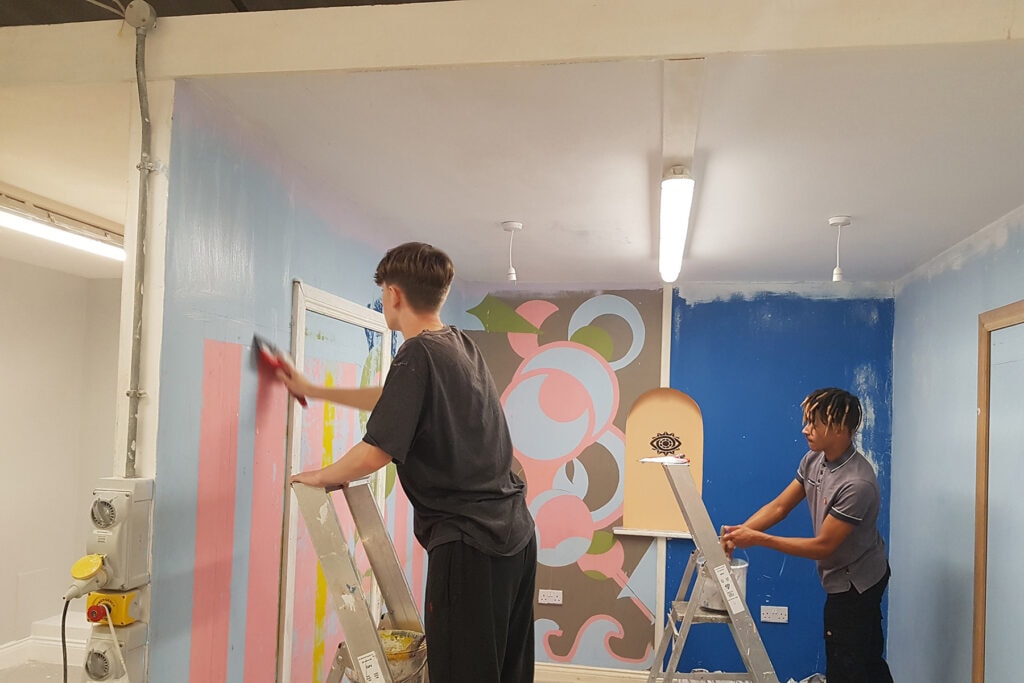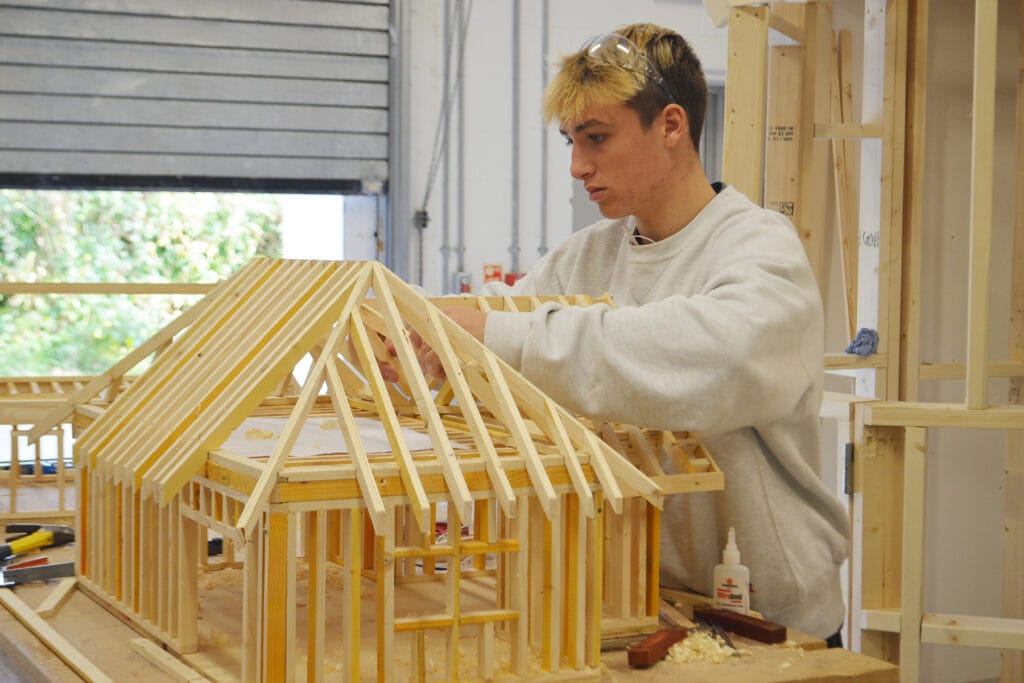New students starting in September: You can find more information about Induction days and submitting your GCSE results in our Start of Year Guide.
Why Choose This Course?
This apprenticeship standard is designed to equip apprentices with the essential skills, knowledge, and behaviours required to excel in the painting and decorating industry. Whether you’re an aspiring apprentice or an employer looking to enhance your workforce, this apprenticeship offers a comprehensive pathway to success. Apprentices will gain practical experience in preparing surfaces, applying paint, wallpaper, and other finishes to a high standard, mastering techniques for both interior and exterior projects. The apprenticeship covers vital topics such as health and safety, environmental considerations, and the use of tools and equipment.
Apply for this course
Start date: 01/10/2025
Top Course Highlights
Industry-standard facilities
Highly experienced tutors
Develop skills in line with industry needs

Learn from sector experts
Gain invaluable insights and hands-on experience from industry expert tutors who bring real-world knowledge and expertise to the classroom. Their guidance will help you develop the skills and confidence needed to excel in your chosen field.

Develop work-related skills
Enhance your practical abilities and gain hands-on experience that directly translates to the workplace. This apprenticeship course focuses on real-world applications, ensuring you are well-prepared to meet the demands of your chosen career.

Enjoy professional surroundings
Immerse yourself in a dynamic and supportive environment that mirrors the professional world. This apprenticeship course provides access to state-of-the-art facilities and resources, helping you to thrive and feel confident in your career journey.
What Will I Learn?
Knowledge This apprenticeship covers a broad range of essential knowledge areas. Apprentices will learn about health and safety regulations, including the safe use of tools and materials, and the importance of maintaining a clean and organised work environment. They will also gain an understanding of different types of paints, wallpapers, and finishes, as well as the appropriate techniques for their application. Additionally, apprentices will be taught how to interpret technical specifications and drawings, ensuring they can accurately follow project requirements. Environmental considerations, such as waste disposal and the use of eco-friendly products, are also key components of the curriculum.
Skills This apprenticeship enables learners to develop a variety of practical skills necessary for a successful career in painting and decorating. These include surface preparation techniques, such as sanding, filling, and priming, to ensure a smooth and durable finish. They will learn how to apply paint, wallpaper, and other decorative finishes with precision, both for interior and exterior projects. Apprentices will also be trained in advanced techniques like colour mixing, stencilling, and decorative effects. Effective communication and customer service skills are emphasised, enabling apprentices to interact professionally with clients and colleagues. Additionally, time management and project planning skills are cultivated to help apprentices manage their workload efficiently and meet deadlines.
Behaviours Apprentices are expected to demonstrate a strong work ethic, being motivated, reliable, and adaptable. They must show responsibility towards their own and others’ safety in the workplace.
Typical Duties that an Apprentice will carry out in the workplace:
- Surface Preparation: This includes cleaning, sanding, filling, and priming surfaces to ensure they are ready for painting or decorating.
- Applying Finishes: How to apply paint, varnish, and stains to various surfaces such as walls, ceilings, and furniture. Apprentices will also apply wallpaper and other wall coverings according to design plans.
- Mixing and Matching Paints: Apprentices will be taught how to mix and match paints and finishes to achieve the desired colours and textures.
Where Will It Take Me?
Completing the Painter and Decorator Apprenticeship opens up a variety of career opportunities. Apprentices can progress to become skilled painters and decorators, working on diverse projects ranging from residential homes to large commercial buildings. With experience, they may advance to supervisory roles, manage their own business, or specialise in areas such as heritage restoration or interior design.
Assessment Arrangements
The End-Point Assessment (EPA) is a crucial component of apprenticeship standards, designed to evaluate an apprentice’s knowledge, skills, and behaviours (KSBs) acquired during their training. The EPA typically includes a combination of practical assessments, professional discussions, and portfolio reviews, ensuring apprentices are fully prepared for their chosen career. This assessment is carried out independently by an End-Point Assessment Organisation (EPAO), ensuring impartiality and fairness. Employers play a key role in confirming readiness for the EPA, supporting apprentices throughout the process to achieve successful outcomes.
EPA (End Point Assessment) methods
- Multiple Choice Knowledge Test
- Practical Skills Assessment with Questions
- Professional Discussion (Interview) underpinned by a Portfolio of Evidence
Entry Requirements
Grade 2 GCSE (E) in English and Maths.
Additional Information
As in the workplace PPE will be required for the course such as safety boots, goggles etc. You will be provided with a full list of the protective equipment requirements of the course before you start.
Meet the staff, tour the campus and find out about life as a student at one of the best colleges in the country.







